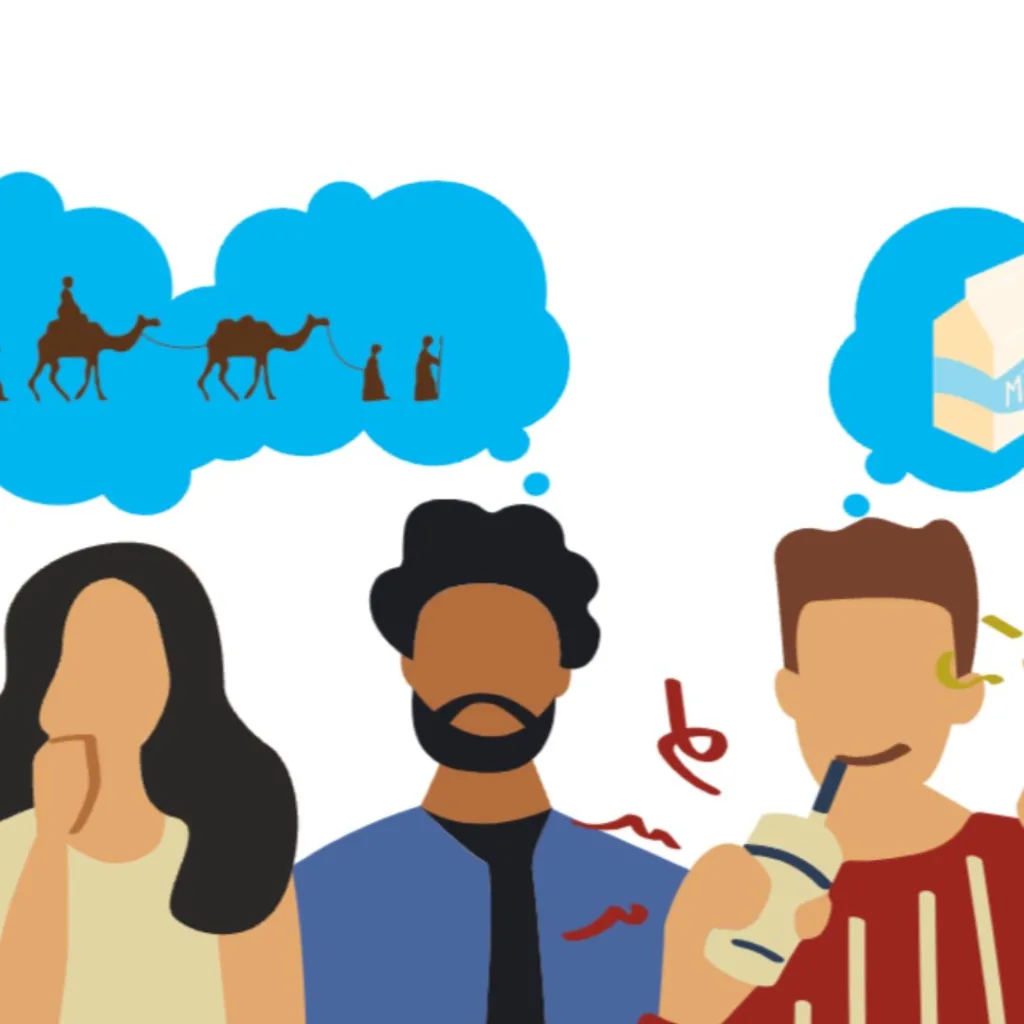What Even is Shavuot?

What even IS Shavuot? Before we get to Shavuot, we need to talk about Passover:
Passover is a holiday that begins with oppression, slavery, and what we refer to poetically as “metzarim”, or narrow places. The Hebrew word for Egypt (where the Israelites escaped from) is the word Mitzrayim, which shares a similar meaning with metzarim. The Passover story tells how the Israelites miraculously left Mitzrayim. But the story doesn’t tell us what happened after they crossed the sea…
The Israelites weren’t in the clear after escaping Egypt. They had to make a journey through the desert to what they hoped would be a safer place, a promised land where they could be free. On their way, they pitched their tents at the base of a mountain called Sinai. There, exactly 50 days after the Israelites fled Egypt, they received the Torah; the foundational intellectual, legal, and spiritual basis of Judaism. That day is called Shavuot which translates to “The Feast of Weeks” because it occurs exactly seven weeks after Passover.
So that’s why Shavuot is such a big deal.
Shavuot is the day when the Jewish people received our central source of being and peoplehood. It marks the exact moment when the Israelites evolved from a band of wandering refugees escaping Egypt into a people with self-determination, a collective purpose, a promised land (Israel), a communal identity, and a covenant with one God. Shavuot marks the day we transitioned from a scrappy start-up concept to an enterprise.
It is said that all Jews, including Jews by Choice, who ever were, are, and will be were present at Mount Sinai during this moment of revelation. So if you identify as a Jew, check your metaphysical memory and see if you can find yourself in the crowd!
But how do we actually celebrate Shavuot? Here are two of the most popular Shavuot traditions:
- Learning and teaching: In honor of receiving Torah at Mount Sinai, some people stay up all night learning and teaching Torah. What people choose to learn/teach varies from community to community, but it’s traditional to focus on Jewish topics and themes.
- Eating dairy products: There are several reasons why Shavuot is often referred to as “the cheesecake holiday”.
One reason is poetic: Because Israel is referred to in the Torah as “a land flowing with milk and honey.” And since Shavuot is all about Torah, then it’s only right to eat/drink some milk products, right?
A second reason is logistical: Prior to receiving the Torah at Mount Sinai, there was no such thing as “keeping kosher.” Those laws were not a part of the Jewish consciousness yet. But after Sinai, suddenly there were rules about what and how to eat. Some of those laws (which still exist today) mandate separating milk products from meat products.
This explanation for eating dairy on Shavuot suggests that when the Jews returned to their camps after receiving the Torah, they ate a celebratory dairy meal in order to avoid cross-contamination with any meat products laying around and to give themselves time to adjust to the brand new dietary rules stipulated in the Torah.
Finding yourself at Sinai:
“Shavuot not only commemorates the experience of our ancestors receiving Torah at Mount Sinai, it invites us to inhabit this sacred process of reception ourselves. In Judaism, revelation is an ongoing process in which our learning, commentary, and insights are essential.” – “Shavuot and the Sacred Process of Becoming” by Adina Allen
“The rabbi of Kotzk was asked: “Why is Shavuot called ‘the time the Torah was given’ rather than the time we received the Torah?” He answered: “The giving took place on one day, but the receiving takes place at all times.” – Tales of Hasidim – Martin Buber
Questions to think about this Shavuot:
- In what ways have you spent the last seven weeks of your life in a state of “wandering”? Do you have a sense about where your journey might be leading you?
- Do you feel that you are moving toward a moment of revelation in your life? Who or what is guiding your way?
- Do you currently have a practice of learning and engaging with Jewish thought? How, if at all, might you like to initiate or deepen that practice?